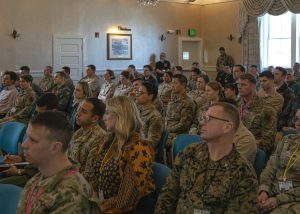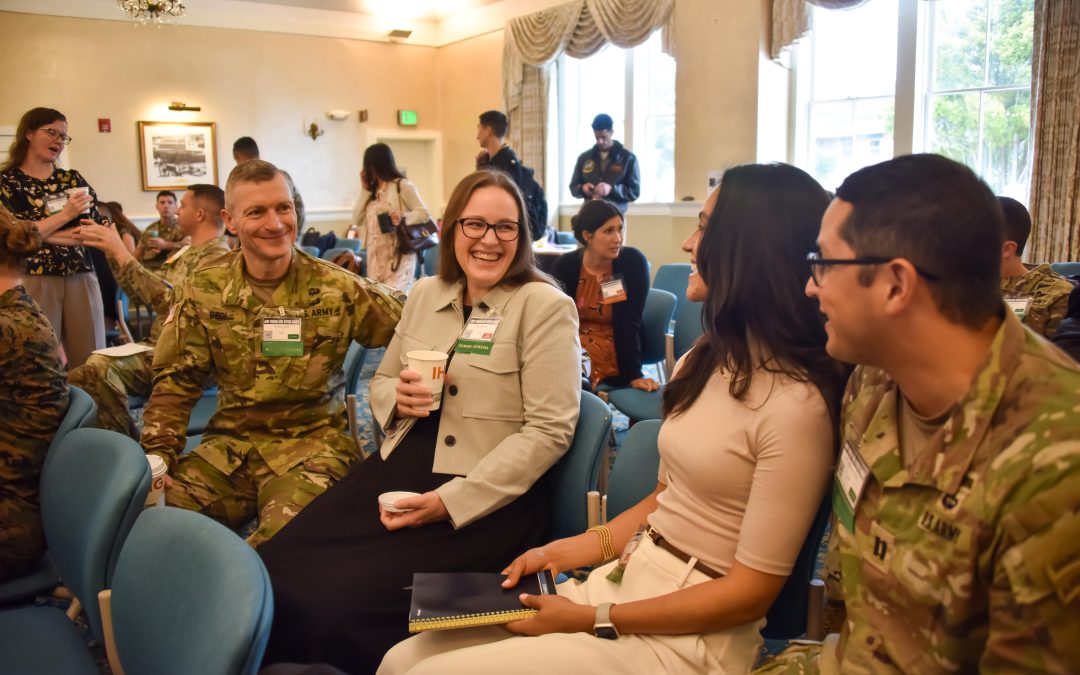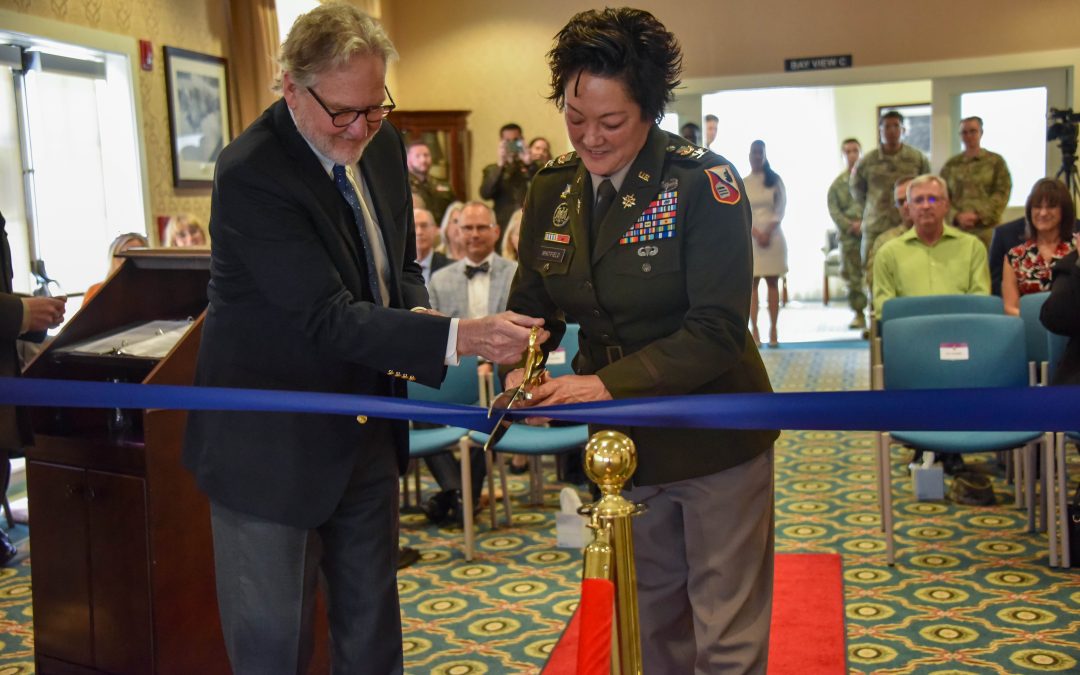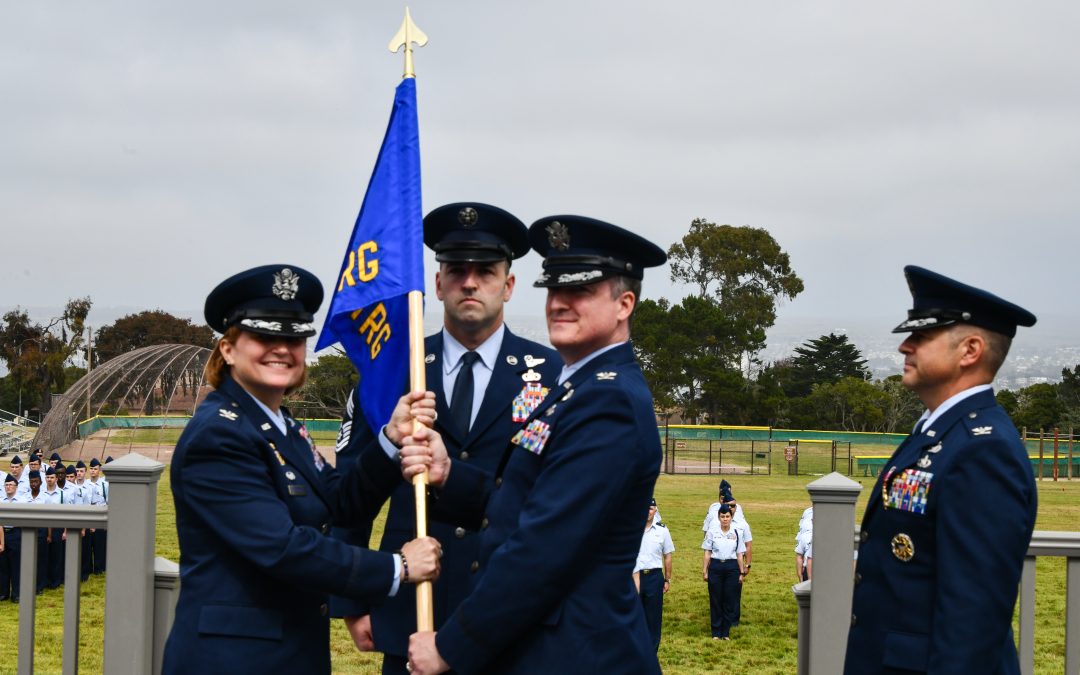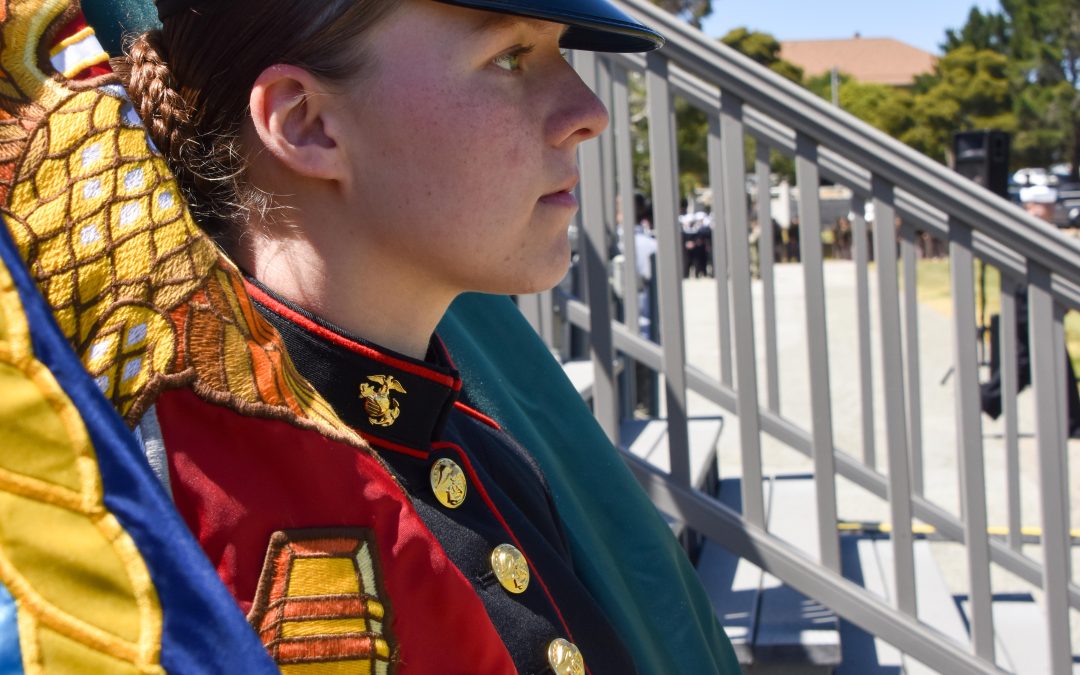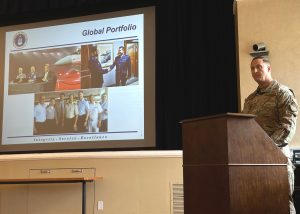
Air Force Maj. Gen. Julian “Ghost” Cheater presents essential concepts and foundational principles for becoming an exemplary Foreign Area Officer to the incoming class
More than 100 officers and their spouses attended the Joint Foreign Area Officer Course held at the Defense Language Institute Foreign Language Center’s Weckerling Center Jan. 22 to 26 at the Presidio of Monterey.
The path to becoming a Foreign Area Officer starts with the Joint Foreign Area Officer Course. The JFAOC is held twice a year at DLIFLC and covers FAO roles, cultural skills, national security policy, security cooperation, strategic politico-military planning, country team integration, attaché responsibilities and cross-cultural negotiation techniques.
The keynote speaker for the event was Air Force Maj. Gen. Julian “Ghost” Cheater, who began his FAO career nearly 30 years ago as a graduate from DLIFLC’s Spanish course.
“It brings back a lot of memories being here, looking down the road to the old building where I learned Spanish,” Cheater reminisced. “[DLIFLC] is an amazing experience with very dedicated teachers and is really very innovative.”
With a career that has spanned numerous command positions at multiple levels and over 3,700 flight hours in combat operations, Cheater is the assistant deputy under secretary of the Air Force, International Affairs, Department of the Air Force. He currently oversees U.S. Air Force and Space Force international affairs, guides political-military relations, security programs and international policy to support national security goals and leads the development of over 400 Foreign Area Officers across 38 nations.
Excited about the new faces in the room, Cheater motioned towards the new crop of FAOs about to embark on their careers.
“It’s really motivating for all of us who are maybe a bit more senior, to feel the energy in the room,” he said, referencing the buzz of new FAOs eager to begin their own adventures. “Seeing the young folks who are just starting in their new career is motivating to us to share our experiences with them. Hopefully, they get something out of it they can take with them on their journey.”
When asked if he agreed that language proficiency was simply a “soft power” as many have alluded to in higher echelons of government circles, Cheater couldn’t disagree more.
“It gives you clues to that culture,” Cheater explained. “Inherently by learning the language, you understand that culture to a greater extent and that is a core competency for our foreign area officer career field.”
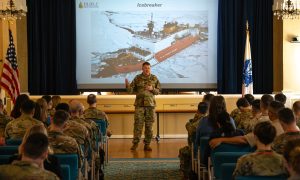
U.S. Army Col. James A. Keivit, commandant of the Institute, welcomed students in his opening remarks
“We teach one global language course, whether you’re Intel, Special Operations Forces, or a foreign area officer coming through here,” explained Army Col. James A. Keivit, the commandant of DLIFLC, to the new students. “We’re going to provide you with that platform or that floor from which to spring forward…towards those job-specific skills for FAOs.”
To illustrate some of the challenges FAOs face in the field, Cheater recounted an operation where, in Baghdad, he commanded a joint special operations task force and engaging in high-level negotiations across Central and South Asia. He stressed the importance of being well-prepared and educated, which allows for meaningful interactions with key partners and furthers U.S. national security objectives.
“We know the key members of the country team and the association there… it was a small world and you’re going to run into the same people ninety times over,” Cheater said. “The high-level access that we had demonstrated the elevated level of importance that those nations place on the relationship with the United States.”
Cheater also touched on the broader strategic challenges faced by the U.S. and its allies, citing geopolitical tensions, the proliferation of sophisticated military capabilities by adversaries and the need for collective action to address transboundary challenges, like climate change and pandemics.
“Strong international relationships are a strategic imperative,” Cheater stated, underscoring the complexity of navigating partnerships amid a web of political, legal and policy barriers.
This year guest speakers also included Rear Adm. Michael Baker, senior defense attaché to India, former Ambassador John Ordway, foreign affairs professional and Brig. Gen. Patrick A. Teague, U.S. Army, senior defense official and defense attaché in Beijing, China.
Cheater closed by reiterating the essential role of FAOs in shaping these relationships, which are vital for advancing military capabilities and ensuring collective security.
“And as you serve overseas,” Cheater concluded. “You will learn that this access and the influence with those key partners set up the stage for success and help further our U.S. national security objectives.”
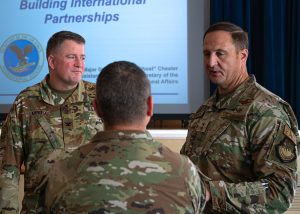
(Left to right) Col. Keivit, U.S. Air Force Col. Mark S. Jones and Maj. Gen. Julian “Ghost” Cheater discuss the “One DLI” concept
FAOs are specialized commissioned officers in the armed services, trained and developed to fulfill global requirements. Known as “Soldier Statesmen,” they are regionally focused experts with a strategic understanding of political-military operations, equipped with knowledge in political, cultural, economic and geographic aspects of specific regions and proficient in foreign languages.

